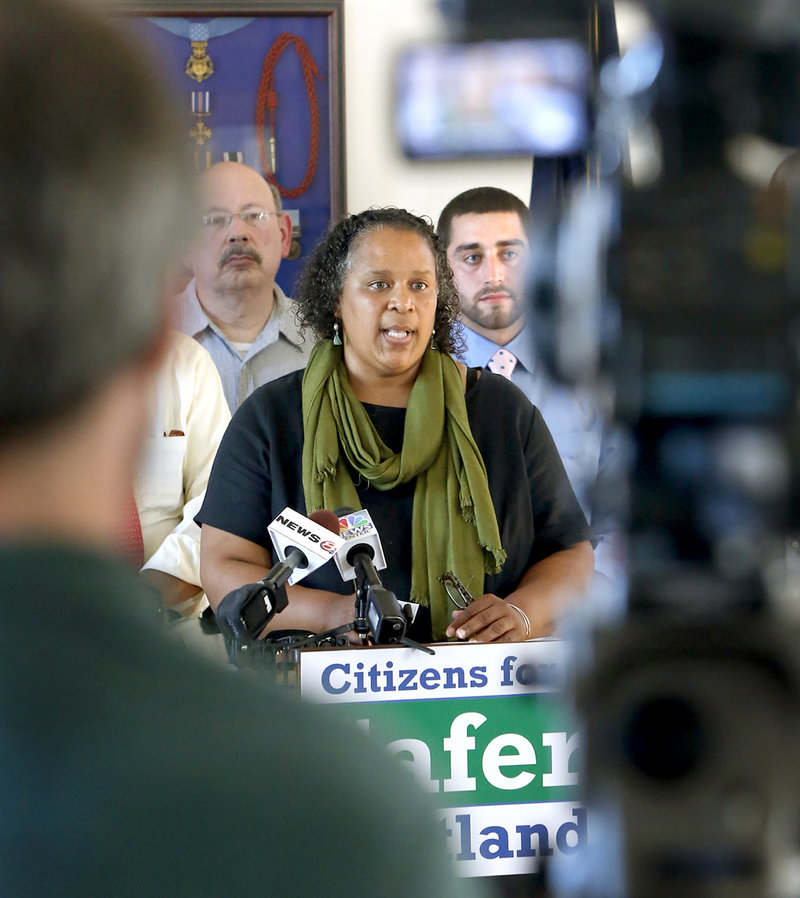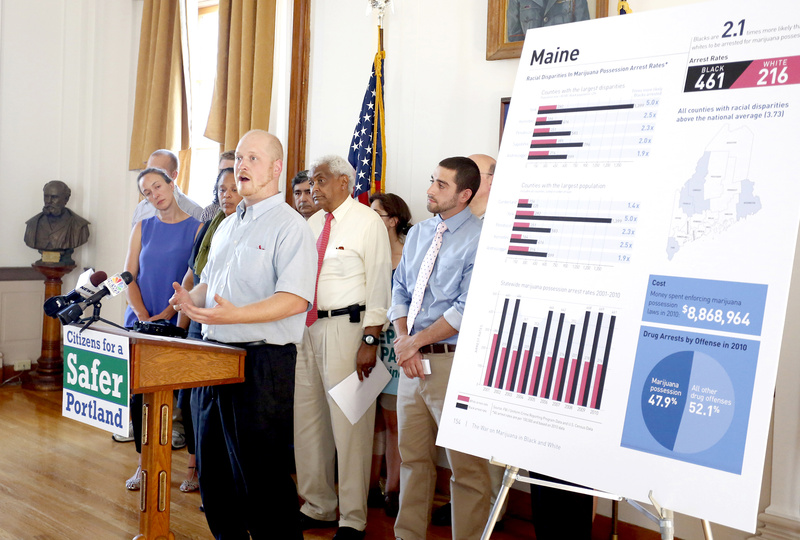PORTLAND – Voters on Nov. 5 will have the opportunity to legalize possession of up to 2.5 ounces of marijuana for adults age 21 and older.
The City Council voted 5-1 Monday night, with Councilor John Coyne opposed, to send the measure to voters, rather than simply adopt a citizen-initiated ordinance that was endorsed by more than 2,500 residents.
Marijuana is illegal under federal law. State law allows people to use medicinal marijuana for medical purposes if recommended by a doctor.
Portland’s ordinance would fly in the face of both laws. Coyne said he was concerned the city could lose state and federal funding.
“This lowers the bar for Portland,” he said.
Police Chief Michael Sauschuck has said police are taking a wait-and-see approach to the leglization effort. Before the meeting, Sauschuck said police issued 53 civil violations for marijuana possession from July 2012 to July 2013. About 68 citations were issued in the prior year, he said.
David Boyer of the Marijuana Policy Project said at the council meeting that if the measure passes in November, police will be able to use discretion about which laws to enforce. He hopes that police will “respect the will of Portland voters.”
About a dozen people spoke during Monday’s public hearing. Most were in favor of legalizing recreational use of marijuana.
Politicians and civil rights leaders held a press conference Monday afternoon at City Hall at which they said the state’s marijuana policy is costly and disproportionately affects black people.
Representatives from the NAACP of Maine, American Civil Liberties Union of Maine, the Portland Green Independent Committee and Maine Marijuana Policy Project called on councilors to adopt the ordinance.
Advocates at the press conference repeated the argument that marijuana is safer and less addictive than alcohol. But they opened up a new front in the debate by citing statistics that show more black people than white people are arrested on marijuana charges.
Regina Phillips, a member of the executive board of the NAACP of Maine, said the state’s marijuana law is another example of an unfair justice system that affects black people.
Phillips invoked the recent acquittal of George Zimmerman, who shot and killed Trayvon Martin, a young black man, in Florida. Zimmerman was found not guilty of second-degree murder and manslaughter.
“I strongly believe the outcome would not have been the same if the roles were reversed — the young man was white and the shooter was black,” she said. Zimmerman identifies himself as Hispanic.
Marijuana arrests disproportionately affect black people, Phillips said. In 2010, she said, blacks were arrested for marijuana offenses at twice the rate of whites.
Citing 2010 statistics from the Federal Bureau of Investigation, she said blacks in Maine are twice as likely as whites to be arrested for marijuana possession. In Cumberland County, blacks are 1.4 times more likely to be arrested, but in York County, blacks are five times more likely to be arrested.
“It has begun to feel like locking up young black men has become a national pastime,” Phillips said.
Bob Talbot, a board member of the ACLU of Maine, said the state spends $9 million a year on “aggressive enforcement” of marijuana laws that “ensnares thousands in the criminal justice system” and takes people away from their families. That money could be better spent, said Talbot.
“Those are taxpayer dollars that could be spent on hospitals, schools or better solutions,” Talbot said. “The truth is the war on marijuana is a failure.”
City Councilor David Marshall said at the press conference that, although Maine has decriminalized marijuana and made possession of small amounts a civil violation, being caught with the substance is still a federal drug crime that can affect a person’s ability to get a job, a place to live, a student loan or business loan.
“There’s a whole host of federal programs you can be denied simply by having a possession of marijuana charge on your record,” he said.
Marshall said the issue of race and marijuana arrests will be a key component of this fall’s campaign. He said he is confident Portland voters would approve the measure “by a large majority.”
Marijuana laws were changed in Colorado and Washington state through citizen-led initiatives, and Marshall said he hopes the same thing will happen in Maine if Portland voters approve the referendum.
Randy Billings can be contacted at 791-6346 or at:
rbillings@mainetoday.com
Twitter: @randybillings
Send questions/comments to the editors.




